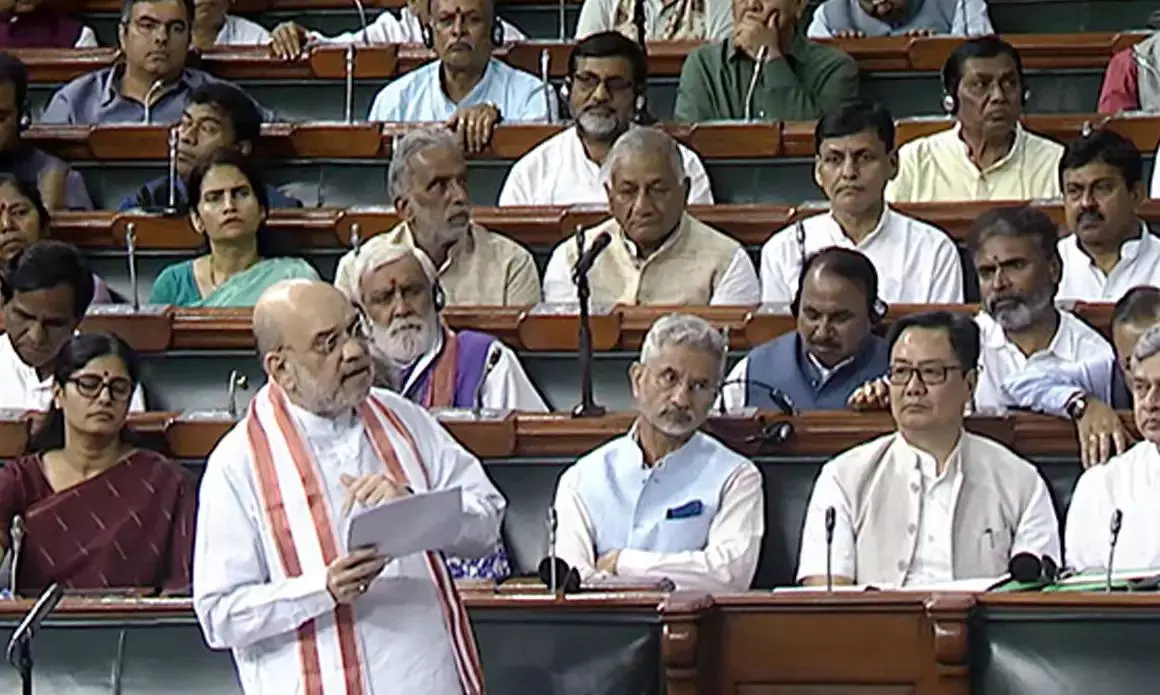
Centre redefines terrorism; proposes crucial criminal code revisions
text_fieldsNew Delhi: On Tuesday, the central government revised the legal definition of a "terrorist act," which now includes threats to the economic and monetary security of the nation, through actions such as disseminating counterfeit currency or kidnapping, injuring, or causing the death of a public functionary.
These modifications are part of the proposed changes to the Bharatiya Nyaya Sanhita, or BNS, one of the three bills which will replace existing criminal laws.
The BNS and the two other Bills - the Bharatiya Nagarik Suraksha Sanhita and the Bharatiya Sakshya Adhiniyam - were first tabled in Parliament in August and referred to a committee for further scrutiny, but were withdrawn earlier this week to include the committee's recommendations.
Revised versions of all the three were tabled in the Lok Sabha this evening.
According to Section 113 of the BNS, those who threaten, or are likely to threaten, the country by causing "damage to the monetary stability of India, by way of production or smuggling or circulation of counterfeit Indian paper currency..." commits a terrorist act, reports NDTV.
 Also Read - Govt likely to table amendment to bring CEC, ECs on par with judges of SC
Also Read - Govt likely to table amendment to bring CEC, ECs on par with judges of SC
Those found guilty of committing a terrorist act shall "be punished with death, or imprisonment for life", and those who conspire or attempt to abet or incite such action, or knowingly facilitate the commission of a terrorist act, could face a jail term of not less than five years and extending to life.
The revisions also include causing harm to mental health in its definition of "cruelty" towards women. In the previous iteration of the BNS, Section 85 stipulated a three-year jail term for the husband, or members of his family, found guilty of subjecting his wife to cruel treatment.
The previous BNS section, however, lacked a specific definition of "cruel treatment," which has now been added. The definition now encompasses both mental and physical well-being.
The revised Section 86 defines cruelty to women as "... any wilful conduct, which is of such a nature as is likely to drive the woman to commit suicide, or to cause grave injury, or danger to life, limb or health (whether mental or physical)".
A third addition prescribes a two-year jail term for revealing the identity of a sexual assault victim from court proceedings without their permission.
The centre has, however, disagreed with two suggestions made by the parliamentary committee as they would have far-reaching consequences and would have been seen as against the Supreme Court and its judgments, sources said.
One is on adultery and the other is on the criminalisation of homosexual sex.
The committee had recommended that adultery be retained in the BNS but the Supreme Court had struck down this offence in 2018, saying it discriminated against women, perpetuated gender stereotypes, and diminished the dignity of women.
In the same year, the court also struck down the criminalisation of homosexual sex between consenting adults.
























